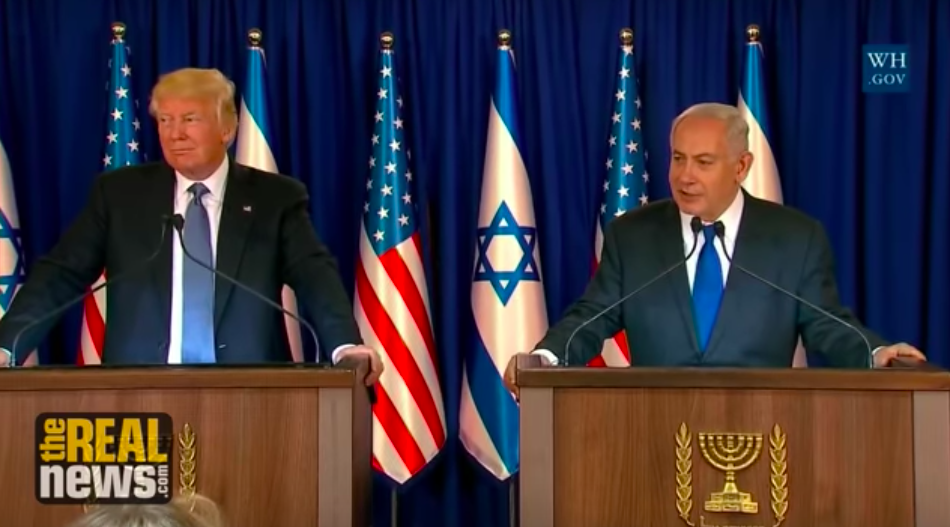Details regarding what Donald Trump calls his “Deal of the Century” on Israel-Palestine have reportedly been leaked. Not surprisingly, Palestinians find themselves the subject of a peace deal that fails to incorporate their input.
According to reports, Gulf nations will invest $4 billion in northern Sinai in Egypt near the Gaza Strip, and will establish an airport and seaport meant to serve the area. As a result, responsibility for the Gaza Strip will transfer to Egypt. This means it will be split off from the rest of Palestine, preventing a unified Palestinian state.
Phyllis Bennis, direct of the New Internationalism Project at the Institute for Policy Studies, joined The Real News Network’s Ben Norton to discuss the reported leaks.
Most of the details reported are not “new ideas,” said Bennis. Rather, they are “old, recycled ideas that essentially mean an end to the idea of an actual Palestinian state.”
Bennis reiterated that no details from the leaks have been confirmed, and wondered aloud if they were leaked intentionally. “Some of the leaks may [have occurred]… to gauge” popular opinion among Palestinians in the region, as well as globally,” suggested Bennis.
Would Palestine be recognized as a state? “Maybe,” said Bennis, before explaining that if it were, it would be based “only in the land that Israel has, so far, not settled.” This amounts to only about 40 percent of the West Bank, according to Bennis.
What about Israeli settlers? Bennis believes that smaller, more remote Israeli outposts could likely be removed, but that a majority of larger settlements — along with “80 percent of settlers” — would remain.
Another major concern is the notion of a Palestinian capital. Will it be in Jerusalem? Bennis thinks not.
Bennis noted there is a possibility the Israeli’s might concede a Palestinian capital in the small village of Abu Dis, which borders Jerusalem, but was clear that this option is unlikely to suffice.
All of this sounds like bad news for Palestinians. So, what is the incentive for them to acquiesce? “Lots and lots of money,” said Bennis. The Saudis, she said, would likely contribute significant financial support to the improvement of the West Bank, while the UAE focused on Gaza.
This new peace plan is based on the hope that “billions of dollars” of investments will pacify Palestinians.
Among the leadership of Egypt, Israel, Qatar, Jordan, and others in the region, there seems to be a willingness to work purely among themselves on this issue. To these leaders, Bennis posed a crucial question: “How far do they think they can go without any Palestinian buy-in?”
It appears that if and when a peace plan is implemented, it will likely be without the input of Palestinian voices.
“I think what we’re seeing here is a willingness on the part of all of these governments, the Arab states, [and] certainly Israel, led by the Trump administration, to say that Palestinian voices don’t matter,” said Bennis.
…
